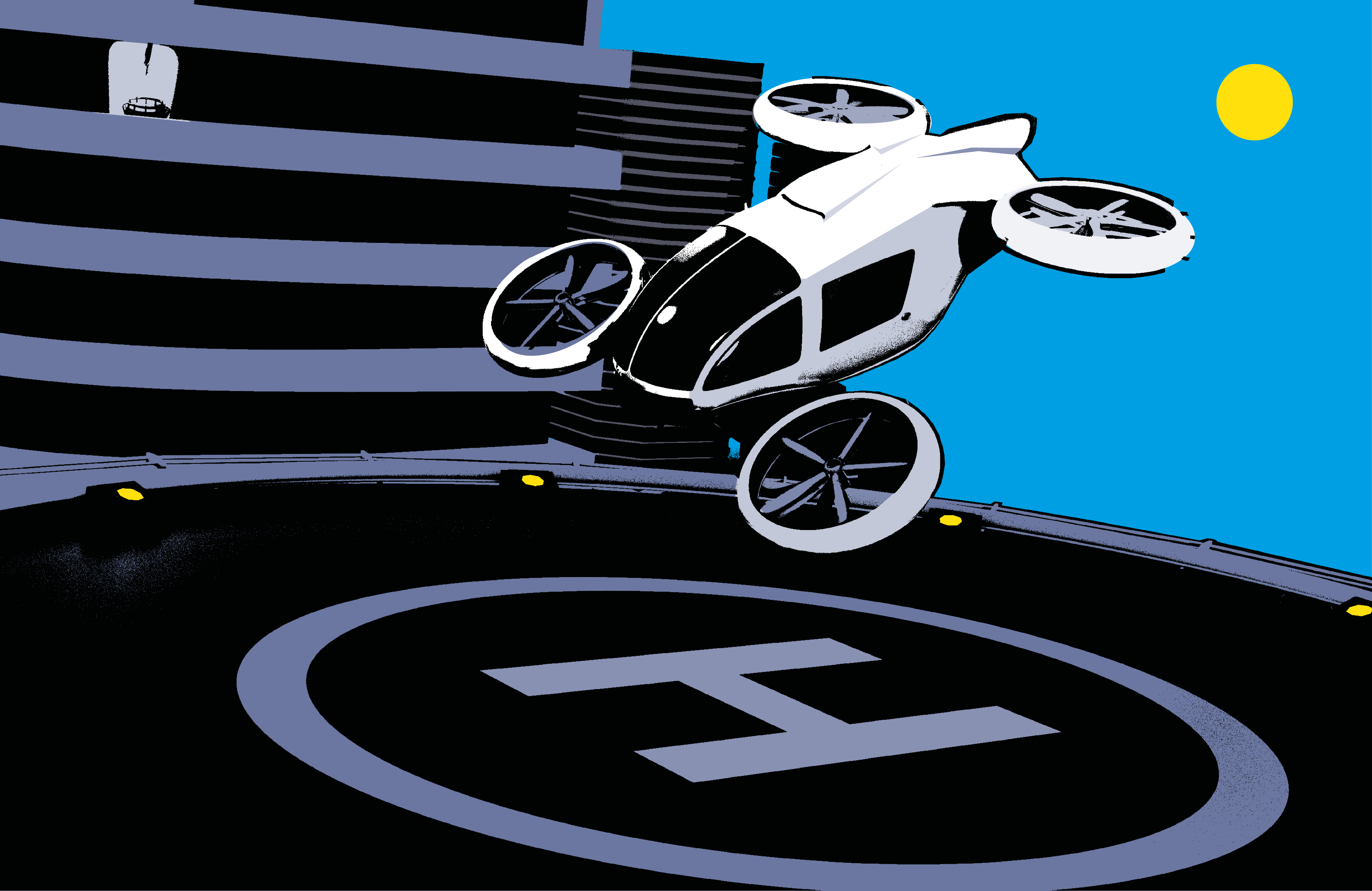Advances in battery technology are changing the way goods and people are transported. At one end of the scale, improvements to the energy density of batteries have enabled the development of drones, e-scooters and e-bikes; at the other, electric cars, buses, and trucks are taking over the heavy lifting from their polluting, fossil-fuelled counterparts.
Although most cars on the road still run on petrol or diesel, the switch to electric vehicles (EVs) is gathering momentum. In 2022, 14% of all new cars sold globally were EVs – a significant increase on the 5% sold in 2020.
Legislation designed to combat climate change is driving this shift. The EU, China and some US states – including California – have pledged to ban new petrol and diesel vehicles by 2035, while others will introduce their bans earlier.
A tech-centric car industry
This shift in attitudes and rules is generating a new tech-centric car industry – one in which digital knowhow and software skills are at least as important as engineering nouse and manufacturing capabilities.
The qualities that made Germany and Japan powerhouses of the automobile industry in the late 20th century have become less important, as basic “skateboard” platforms are standardised and shared between manufacturers. When it comes to EVs, it’s software as much as hardware that defines a car’s success.
China and the US are emerging as the new centres of this mobility tech revolution. Both have vast domestic markets to support sales and act as a testbed, with China home to the largest volume of EV stock and accounting for more than half of global EV sales in 2022. On top of this, both countries benefit from policy legislation encouraging the testing of semi-autonomous and driverless vehicles.
As a result, the US and China dominate the Savills MobilityTech Index – which rates the most important global cities in this space – accounting for the top 13 places.
Tokyo (14th place) is now showing signs of adapting to the changing marketplace, as are a handful of European cities.
Savills Tech Cities: MobilityTech Index
Source: Savills Research
City leaders in MobilityTech
California might not be traditionally associated with the car industry, but it’s been at the vanguard of technology innovation in recent decades and MobilityTech is no exception. Uber, Lyft, Cruise and Waymo are all headquartered in the Golden State, as was Tesla until 2021.
Silicon Valley takes the top spot in the Savills MobilityTech Index, with San Francisco ranked third. These areas have benefited from abundant access to venture capital funding, extensive R&D and a flourishing university and tech sector, nurturing many of the entrepreneurs in this sector.
Geography and a supportive regulatory environment have also played their part. Driverless cars are a relatively common sight in San Francisco after state authorities granted permits to several companies to start testing these automated vehicles.
California isn’t the only US region making strides in this sector. New York (2nd), with its deep pool of tech talent, is rapidly becoming a global MobilityTech centre, while eighth-placed Austin, in business-friendly Texas, is home to recently relocated Tesla and one of its six global gigafactories.
Elsewhere, Detroit (11th) is reprising its role as a motor city but for the digital age, sitting just outside the top 10 in our index. Affordable manufacturing, warehousing and testing space, as well as housing for staff, abound in a city that’s less expensive than other US hubs, but has heritage and experience to draw upon. Detroit’s renaissance is symptomatic of a broader desire, amid continuing geopolitical uncertainties, to encourage domestic manufacturing and fortify supply chains.
China also has five cities in the Savills MobilityTech Index top 10, led by Shanghai (4th) and Beijing (6th) – both important hubs for investment and home to vast talent pools. Shenzhen, ranked 7th, is the headquarters of BYD, the world’s largest electric car manufacturer.
Many of the dockless bikeshare schemes now rolled out in cities across the world (such as Mobike) originated in China and Hangzhou (12th) is home to more shared bikes than any other city in the world. Numbers here topped 800,000, before being culled to manage congestion.
Mobility technologies of the future
Electrification is not simply about building good EVs. Each nation will have to invest heavily in charging networks and battery production, alongside renewable electricity generation, to make electrification a functional and effective element of the drive to net-zero. Only then can the potential applications be properly explored and begin to shape how we live.
Drones, hyperloops and truck platooning could radically alter everything from long-distance journeys to last-mile logistics, while micro-mobility – in the form of e-bikes and scooters – is already opening up new areas for development that were previously too poorly connected.
Meanwhile, robotaxis, though slow to commercialise, are taking root – Baidu’s Apollo Go service now operates in a number of Chinese cities. Wider adoption in the West, along with increased use of app-based carsharing schemes, would free up city planners to replace parking spaces with greener infrastructure.
The psychological shift from car ownership to car usership remains a barrier. And yet, paradoxically, it is the emergence of a new breed of low-maintenance, desirable and potentially driverless electric vehicles that makes that step change seem possible.
As European carmakers step up to compete with China and the US, we may yet see some familiar motoring cities challenging for positions on the Savills MobilityTech Cities Index. But as tech permeates the mobility sector, locations that offer quality of life coupled with affordable city living may find themselves with an edge in the global competition for footloose tech talent.
Methodology:
Our 2023 Tech Cities ranking measure a city’s business environment, tech environment, city buzz & wellness, talent pool, and its strength and depth across different tech sub sectors:
*for each of the 11 Tech Sub sectors (AgTech & FoodTech, CleanTech & ClimateTech, Deep Tech, E-Commerce, FinTech, Industrial Tech, Life Sciences & HealthTech, MediaTech, MobilityTech, Software, SpaceTech). These are aggregated to form our overarching Tech Cities index.



